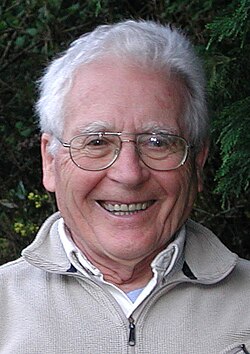James Lovelock Quote
This programme to stop nuclear by 2020 is just crazy. If there were a nuclear war, and humanity were wiped out, the Earth would breathe a sigh of relief.
James Lovelock
This programme to stop nuclear by 2020 is just crazy. If there were a nuclear war, and humanity were wiped out, the Earth would breathe a sigh of relief.
Tags:
war
Related Quotes
Let my silence grow with noise as pregnant mothers grow with life. Let my silence permeate these walls as sunlight permeates a home. Let the silence rise from unwatered graves and craters left by bomb...
Kamand Kojouri
Tags:
abuse, abused, activism, activism poems, activist, amnesty, bellies, bombs, broken hearts, coming together
Attempts to locate oneself within history are as natural, and as absurd, as attempts to locate oneself within astronomy. On the day that I was born, 13 April 1949, nineteen senior Nazi officials were...
Christopher Hitchens
Tags:
alcohol, alcoholism, andrei gromyko, antisemitism, astrology, astronomy, beijing, birth, birthdays, breastfeeding
About James Lovelock
James Ephraim Lovelock (26 July 1919 – 26 July 2022) was an English independent scientist, environmentalist and futurist. He is best known for proposing the Gaia hypothesis, which postulates that the Earth functions as a self-regulating system.
With a PhD in the chemistry of disinfection, Lovelock began his career performing cryopreservation experiments on rodents, including successfully thawing and reviving frozen specimens. His methods were influential in the theories of cryonics (the cryopreservation of humans). He invented the electron capture detector and, using it, became the first to detect the widespread presence of chlorofluorocarbons in the atmosphere. While designing scientific instruments for NASA, he developed the Gaia hypothesis.
In the 2000s, he proposed a method of climate engineering to restore carbon dioxide–consuming algae. He was an outspoken member of Environmentalists for Nuclear Energy, asserting that fossil fuel interests have been behind opposition to nuclear energy, citing the effects of carbon dioxide as being harmful to the environment and warning of global warming due to the greenhouse effect. He wrote several environmental science books based upon the Gaia hypothesis from the late 1970s.
He also worked for MI5, the British security service, for decades. Bryan Appleyard, writing in The Sunday Times, described him as "basically Q in the James Bond films".
With a PhD in the chemistry of disinfection, Lovelock began his career performing cryopreservation experiments on rodents, including successfully thawing and reviving frozen specimens. His methods were influential in the theories of cryonics (the cryopreservation of humans). He invented the electron capture detector and, using it, became the first to detect the widespread presence of chlorofluorocarbons in the atmosphere. While designing scientific instruments for NASA, he developed the Gaia hypothesis.
In the 2000s, he proposed a method of climate engineering to restore carbon dioxide–consuming algae. He was an outspoken member of Environmentalists for Nuclear Energy, asserting that fossil fuel interests have been behind opposition to nuclear energy, citing the effects of carbon dioxide as being harmful to the environment and warning of global warming due to the greenhouse effect. He wrote several environmental science books based upon the Gaia hypothesis from the late 1970s.
He also worked for MI5, the British security service, for decades. Bryan Appleyard, writing in The Sunday Times, described him as "basically Q in the James Bond films".
